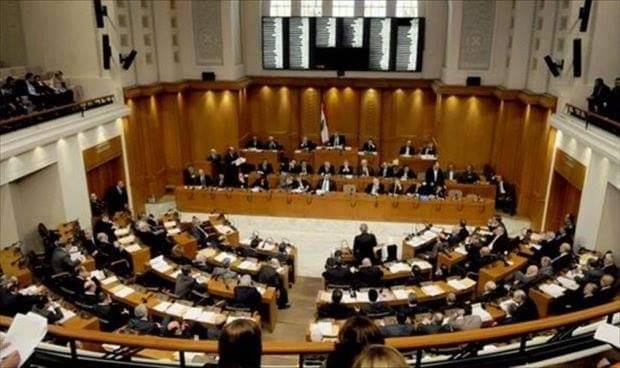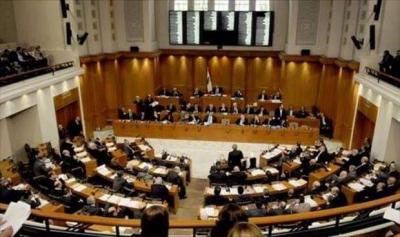The House of Representatives is expected to complete its legislative committee formation at 3 PM today by electing members for the Education and Health Committees, followed by the election of the heads and rapporteurs of all the Council committees. This comes after members elected 14 out of 16 committees last Tuesday, although the process was largely characterized by consensus and endorsements, with voting occurring only for five committees: Administration and Justice, Finance and Budget, Interior and Defense, Public Works and Energy, and Economy and Trade.
Aside from the scenarios that may unfold during today's session, it is important to address and clarify several realities and backgrounds from last Tuesday's meeting, particularly regarding the election process, what transpired, and why some debate and tension arose around the issue, in addition to the results obtained by each deputy during the voting process for the five committees.
First, it must be emphasized that the election mechanism and method within the House of Representatives is stipulated in the Council's internal regulations, which clearly discusses secret voting. This is also enshrined in some constitutional articles, meaning that any amendment or change to this mechanism requires constitutional amendments and modifications to the internal regulations. Anything else remains a matter of stances, statements, and point scoring that does not contribute to or detract from the development of the constitutional institution itself, which is the House of Representatives.
Following this, the election session for committee members last Tuesday witnessed a voting process as prescribed in the internal regulations. Envelopes signed and stamped with the House's seal were distributed according to protocol, as well as lists of candidates' names based on each deputy's preferences communicated to the General Secretariat of the House prior to the session. Some deputies also announced their candidacies during the session, a right available to each deputy in the chamber.
However, what some lawmakers or even public opinion may have missed is that the issue raised by some members of the "Change" forces was related to the printing of candidate names and their distribution within the chamber. This was part of the preparations for the election process, with the option left open for each deputy to handwrite any name they wished to add to the printed list. The number of candidates reached 27, while the number of committee members was 17, which occurred during the election for the Public Works and Energy Committee. Meanwhile, the number of candidates for the Economy and Trade Committee reached 20, with the committee consisting of 12 members. Contrary to the portrayal that the "Change" deputies imposed the electoral process, the numbers and variety of names tell a different story, with allies even competing and differing from one committee to another according to the political agreements in place.
In the Finance Committee, for example, there were 22 candidates, with Deputy Ibrahim Minaa succeeding with 66 votes, while his colleagues Mark Douai (55 votes), Yassin Yassin (40 votes), and Firas Hamdan (27 votes) were unsuccessful. Additionally, Deputy Adnan Traboulsi also ran but did not succeed, earning 49 votes. There were also 8 votes cast for Deputy Hani Qobaisi, who was not a serious candidate for committee membership, indicating that Minaa ranked 17th in a committee with 17 members. The votes received by the winners ranged between 66 and 105, with 121 members present in the chamber.
In the Administration and Justice Committee, the message to the "Change" deputies was clear, as there were 20 candidates, of whom three were unsuccessful. Coincidentally, those three were: Melhem Khafaf (55 votes), Halima Qaqour (39 votes), and Firas Hamdan (18 votes). The success rate averaged between 59 and 102 votes among 120 deputies, indicating that Melhem Khafaf, a former head of the Bar Association, needed only five more votes to join the Administration and Justice Committee.
In the results for the Public Works and Energy Committee, there were strange discrepancies, as 10 deputies failed to secure committee membership: Osama Saad (39 votes), Jimmy Jbour (18 votes), Elias Hankash (35 votes), Nazih Mattah (43 votes), Ghassan Hasbani (18 votes), Charbel Massad (27 votes), Adib Abed Al-Masih (39 votes), Jamil Aboud (33 votes), Ihab Matar (39 votes), and Cesar Abi Khalil (46 votes). Again, the discrepancy arises as Ibrahim Minaa, who ranked 17th, received 48 votes, with the average between 48 and 75 votes.
In the Interior and Defense Committee, which has 17 members, 20 deputies ran, and the unsuccessful deputies included: Ziad Hawat (27 votes), Michel Douaihi (33 votes), and Adnan Traboulsi (38 votes), with a success range between 40 and 99 votes, and 111 deputies present in the chamber.
Lastly, in the Economy and Trade Committee, which has 12 members, 20 deputies ran, with eight unsuccessful ones: Yassin Yassin (26 votes), Elias Khoury (15 votes), Kamel Shammoun (27 votes), Wadhah Al-Sadiq (34 votes), Jamil Aboud (33 votes), Wael Abou Faour (31 votes), Mark Douai (38 votes), and Raji Al-Saad (43 votes). The success range was between 51 and 89 votes, with the number of deputies in the chamber dropping below one hundred.
This is a brief reading of the numbers, awaiting the results of the elections for the heads and rapporteurs for a clearer picture, amidst concerns that political agreements may not translate into a majority based on the outcomes of the election for Speaker and Deputy Speaker and apply this to the committees.




